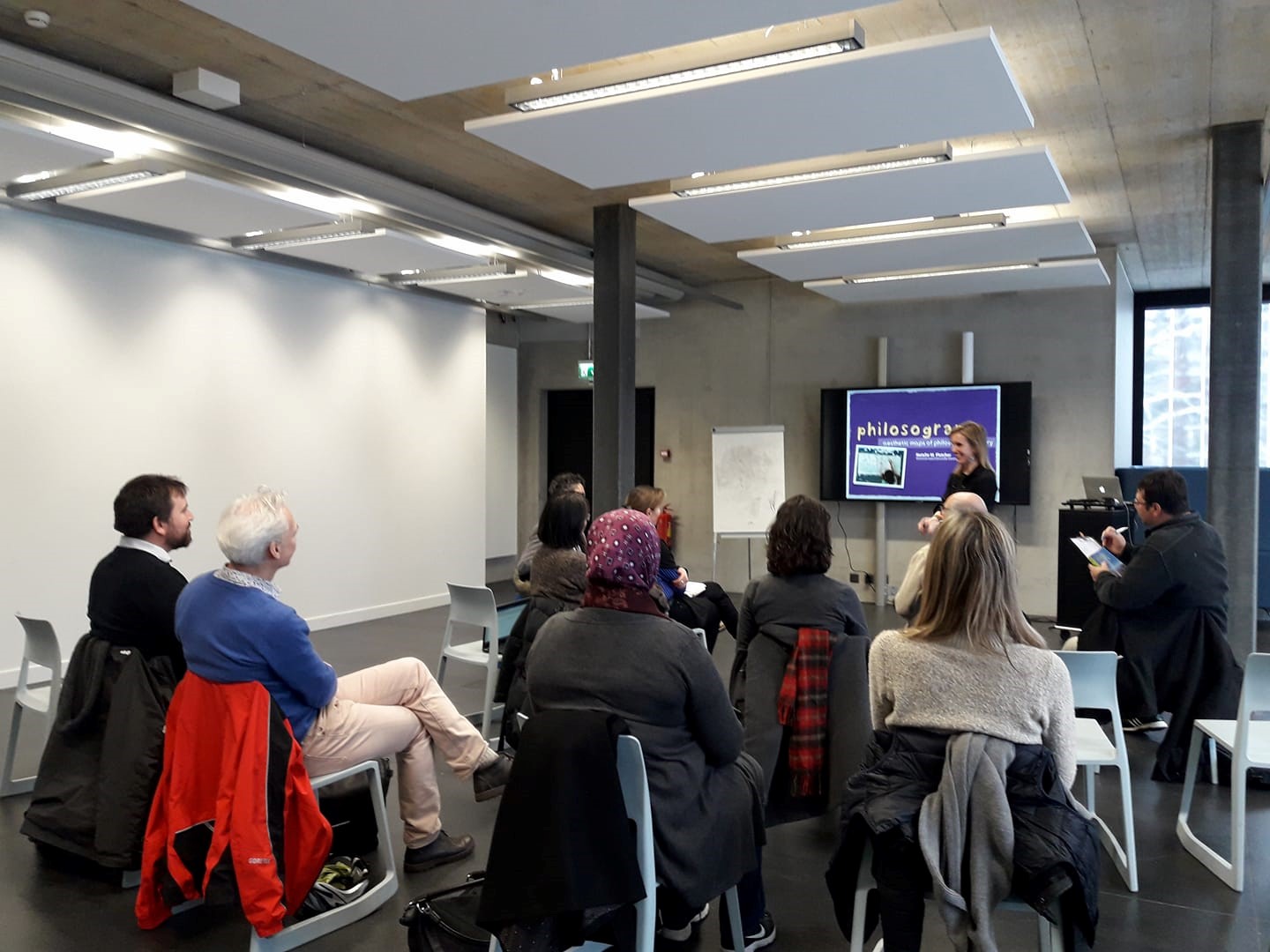Symposium - Autoregulation in Differentiation / Philosophy for Children
It may be winter outside but we have been enjoying a springtime of ideas at the Institute’s Thursday Afternoon Symposium!
1) "Passeurs de l’expérience”

Le 22 février, Sophie Pinazo de l’université Aix-Marseille nous a offert un Symposium sur l’autorégulation et représentations sociales dans les processus d’apprentissage. Notre enrichissante conversation s’est concentrée sur l’évaluation pour l’apprentissage. C’est là où l'on parle d’autorégulation.
Il est clair que l’autorégulation répond aux besoins d’une pédagogie différenciée, le thème clé de nos séminaires de cette année. En donnant de la confiance à l’élève dans ses propres capacités d’apprentissage, l’enseignant devient “passeur” de l’expérience au lieu de “dirigeant.”
La méthode exposée par Mme Pinazo se marie bien avec toutes les valeurs de l’Ecolint, en développant l’autonomie chez l’élève qui réfléchit sur son travail, tout en devenant de plus en plus conscient de ses propres processus métacognitifs.
2) "Philosophy with Children and the aesthetic mapping of philosophical inquiry"

Those who were able to brave the inclement weather to join us for the Symposium on March 1st experienced the incredible energy and brilliance of Natalie Fletcher (Université Laval and Concordia University) as she discussed her work mapping the aesthetic experience of children as they philosophize together. One could not help but realize how incredibly powerful philosophy is as a pedagogical tool and the many ways in which this method challenges common assumptions about children and their cognitive, creative and emotional capabilities.
Ms. Fletcher speaks powerfully of philosophy as “active wondering” and reminds us that children are not just eventual adults; they are sentient, intelligent, curious and sensitive beings who are experiencing their lives in the here and now. There is clearly an element of whimsy and play in the act of philosophizing with children, yet it is also about giving children the language they need to articulate their metacognitive processes and to develop further their self-awareness and their interconnectedness with and appreciation for others.

